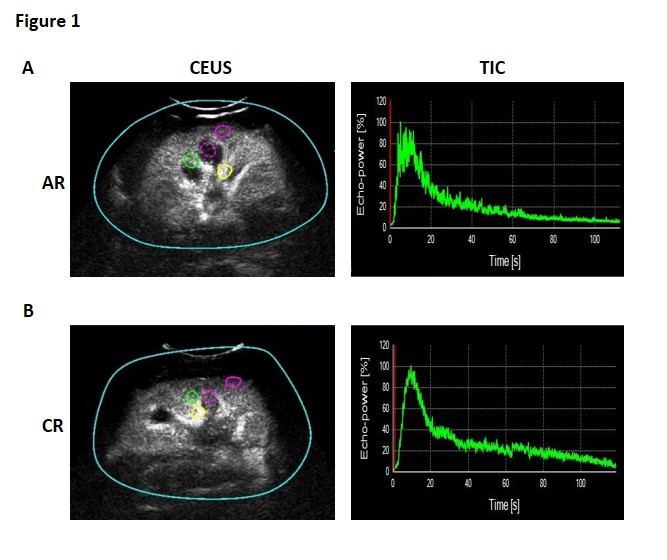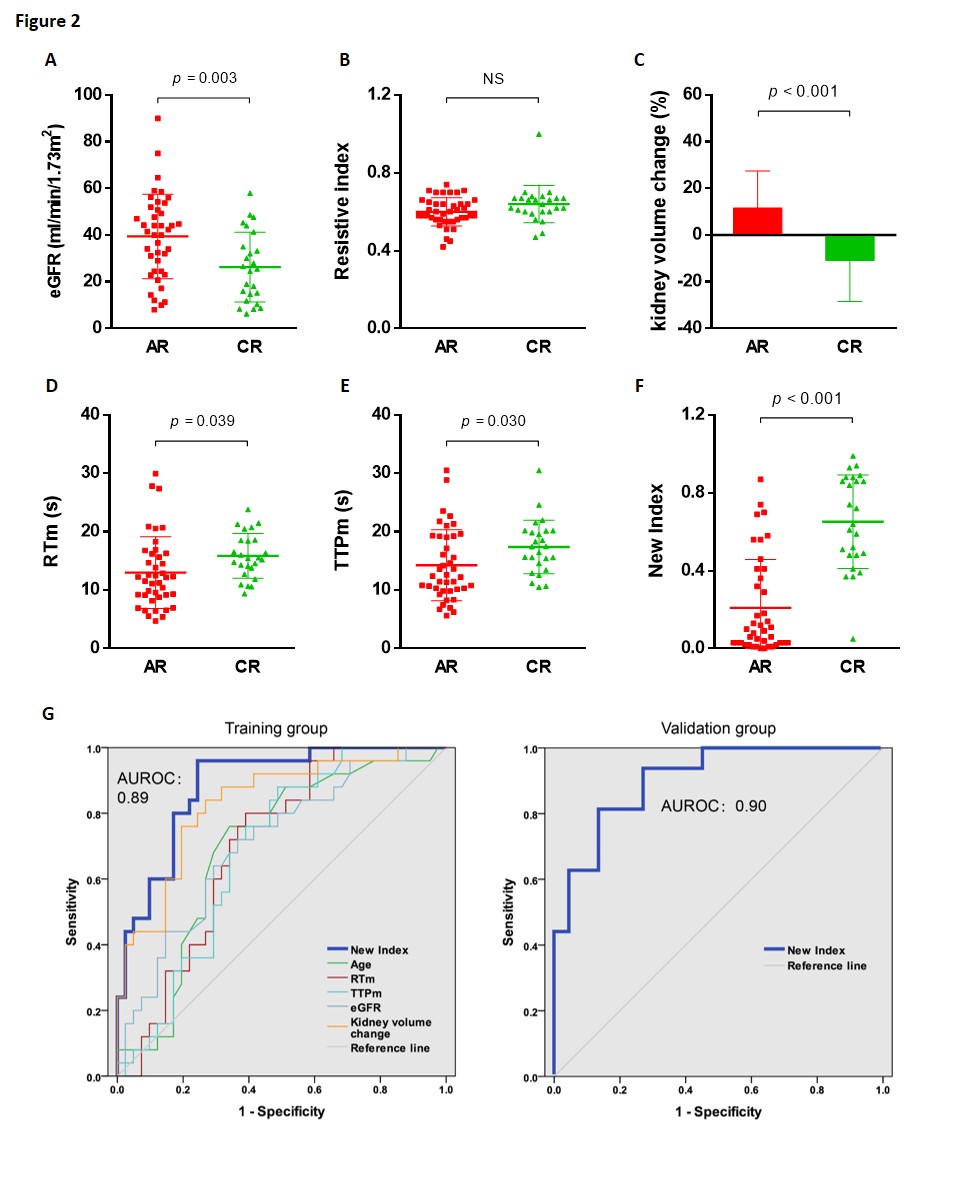Cheng Yang, P.R. China has been granted the TTS Young Investigator Scientific Award
Prediction of Renal Allograft Chronic Rejection using a Model Based on Contrast Enhanced Ultrasonography
Cheng Yang1, Wanyuan He2, Tongyu Zhu1.
1Urology, Zhongshan Hospital, Fudan University, Shanghai, P.R. China; 2Ultrasound, Zhongshan Hospital, Fudan University, Shanghai, P.R. China
Contrast-enhanced ultrasonography (CEUS) represents microperfusion status of transplanted kidneys. Herein, we evaluate the application of CEUS in the assessment of renal allograft rejection by establishing and validating a new noninvasive index to predict chronic rejection (CR). Sixty-six renal transplantation recipients were enrolled in the training group, while 38 were recruited in the validation group. In the CR group, rising time (RT) and time to peak (TTP) of medulla (RTm and TTPm) were significantly longer compared to that in the AR group. The kidney volume was significantly decreased in the CR group, but was increased in the AR group. In the training group, age, kidney volume change and TTPm were identified as independent predictors by multivariate analysis. Based on the multivariate analysis results and area under receiver operating characteristic curves (AUROCs) of individual markers, we constructed a new simple index, P = -5.424 + 0.074 × age – 9.818 × kidney volume change + 0.115 × TTPm; New Index = eP / (1 + eP), to discriminate CR, which had better AUROCs than age, kidney volume change or individual CEUS parameters. Similar results were obtained in the validation group. In conclusion, the new index provides a new diagnosis model for CR.


National Natural Science Foundation of China .
